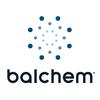New Perspectives on reducing Methane Emissions from Beef and Dairy Cattle Production
Published: June 15, 2014
Summary
Introduction Increasing atmospheric concentrations of greenhouse gases (GHG) is a major worldwide concern. It is estimated that, globally, direct emissions from animal agriculture account for 7-10% of human derived GHG emissions (O’Mara, 2011), with this estimate increasing to 14.5% if indirect sources, such as feed production and deforestation for pasture or crop expansion are accounted...
Content from the event:
Related topics:
Authors:

Recommend
Comment
Share
17 de junio de 2014
It sounds like a contradiction. Instead, it would be better to stop beef production,. It is well known the bad consequences due to meat ingestion by human beings. Furthermore, many attemps have been made to interfere with ruminant metabolism through biochemical compounds with unknown results to the animal as a whole. We will not reduce the greenhouse effect through contradictions.Unless we prevent animal poduction from maximal profits at any cost,or no objectives will be reached for the welfare of all beings on Earth. As for ruminants, they only were born ruminants.
Best regards
Flávio Baccari Jr.
Professor, Animal Biometeorology
Recommend
Reply
7 de julio de 2014
Since tanninferous and saponific forages have shown to have some methanogenic properties, I think breeding of fodders for these properties should be encouraged as a way of mitigating methane emissions.
Recommend
Reply

17 de septiembre de 2014
A comprehensive article which analyses every perspective of Methanogenesis in ruminants. It can be said that the contradiction between food security vs methane gas reduction is going to be the next big topic of debate in the coming decade.
Recommend
Reply
Orffa Excentials
18 de julio de 2017
Congrats for the article.
As seen in it, dietary lipids are one of the most tools to reduce enteric CH4 emissions. This is possitive as those fatty acids that actively reduce CH4 (mainly C18:2 and C18:3) also improves meat and milk quality.
After this, the point is to formulate for fatty acids (taking also into account their degree of protection) to avoid negative effects of free PUFAs (MFD).
Recommend
Reply
1

Would you like to discuss another topic? Create a new post to engage with experts in the community.












